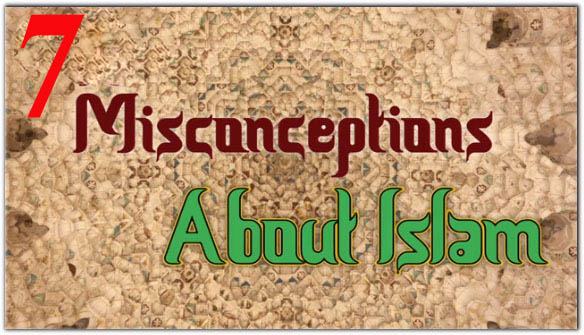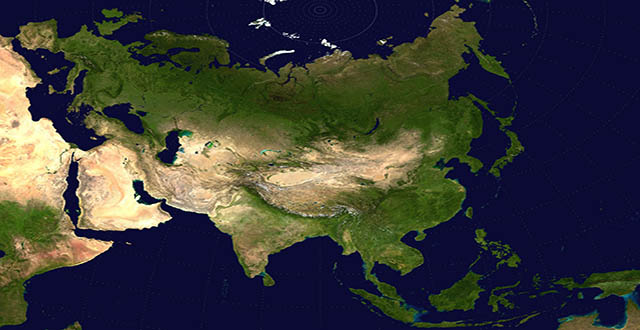
Salm and Salam are the root words for the “Islam” which mean peace and tranquility.[1] The importance of peace and tranquility has been pointed to in the Quran numerous times.[2] For instance, as a verification of Islam being a religion of peace and tranquility, it says:
“یا ایها الذین آمنوا ادخلوا فی السلم کافة و لا تتبعوا خطوات الشیطان انه لکم عدو مبین” “Oh ye who believe! Enter into peace and tranquility altogether and follow not the footsteps of Satan; for he is to you a clear enemy”[3].
From the Quran’s point of view, endless and universal peace and the tranquility of societies are only reachable under the shadow of faith in God, and what connects different societies with all their differences in language, race, wealth and poverty and geographical locations, can only be the belief in God. The belief of Muslims that during the reign of Imam Mahdi (a.s.) there will be universal peace and social justice, is good evidence for such a claim.
The Quran even says: “But if the enemy shows a tendency to peace, do thou (also) show a tendency to peace…”[4]
Of course, all people are born with freedom of choice; some choose to be oppressors and tyrants, causing corruption, therefore it is necessary for a complete religion to have a solution and specific instructions and guidelines for confronting these obstacles that are preventing the guidance of humanity.
Sometimes, oppression and aggression reaches the point that the only thing left to do is self-defense and the usage of force, and that is why Islam has legislated jihad.
In other words, the Quran teaches us to be tough and aggressive with those who don’t follow logic and purposely prevent the prophet’s words from spreading and don’t allow others to be guided because of their enmity towards the truth. The Quran says: “Oh Prophet! Fight hard against the Unbelievers and the Hypocrites, and be harsh with them…”[5]. “The Muslim nation and Muslims must cause fear and intimidation in the hearts of their enemies, so that they don’t even think about invasion, treachery, and harming the Muslims.”[6]
Of course, Islam’s instructions on military alertness and the protection of the country’s borders[7] (which is another form of Islam’s emphasis on keeping peace and friendship and settlement) and its call on jihad for the sake of Allah (which in reality is one of the most important forms of Islamic worship and is the manifestation of true love to God and human fellowship, and is the opposition of corruption and impurity) completely differ from bloodshed, tyranny, panic, war and violence.
Concerning the importance of jihad, Allah (s.w.t.) says: “And do Jihad in (the way of) Allah, (such) a Jihad as is due to him…” [8]
Since jihad hasn’t been legislated for conquest and the expansion of one’s power, one can easily conclude that jihad is a way of freedom and self-defense and not a way of violence. Therefore, if the objectives of jihad are reachable in a peaceful manner, using force and military methods are forbidden. This is also the reason behind why it is wajib to invite the disbelievers to Islam before going to battle with them if a battle ever wants to begin (this shows that what is important for Islam is for the truth to be heard, not fighting and violence, or else, such a thing wouldn’t be wajib).
Therefore, Allah has made jihad wajib for the defeating of tyrants, the freedom of the oppressed and helpless, and in order to get the grounds ready for those who have been kept in ignorance and unawareness regarding divine teachings and how to prosper in this world and the next, to be able to learn about these things and become familiar with them.[9]
Allamah Tabataba’i says in rejection of Islam being pro-war and after violence, and pertaining to the reality and the reasoning behind jihad: “The whole purpose of jihad is the establishment of Islam and for the word of Allah to rise, therefore jihad is a type of worship that needs to be done with the intention of seeking nearness to Allah (because one of the conditions of something being worship is for it to be done with the intention of seeking nearness to Allah). Jihad hasn’t become wajib in order to take over others’ property and households , it has become wajib for the defending of human rights. Originally, defense has limits, while transgression is breaking the limits. Because of this, the end of the verse says: “لا تعتدوا ان الله لا یحب المعتدین[10]; Do not exceed the limits, for verily Allah does not like the transgressors.”[11]
Therefore, not only isn’t true Islam a religion of transgression, dispute, war and violence, but its instructions and rulings (in which one of them is jihad) have all been legislated for the purpose of helping mankind and for spreading peace and security as a result of godly ruling and the rejection of the ruling of taghut (Evil) and fighting against oppression and injustice. In short, jihad is a fair and holy war for reaching high godly goals.[12]
Thus, maintaining peace with enemies and those thinking of kufr, depends on them keeping the respect of the believers and also depends on the believers not losing their strength and might due to keeping peace with them. When sending Malek-al-Ashtar to Egypt to be in charge and run it, Imam Ali (a.s.) says: “If your enemy invites you to a Peace Treaty that will be agreeable to Allah, then never refuse to accept such an offer because peace will bring rest and comfort to your armies, will relieve you of anxieties and worries, and will bring prosperity and affluence to your people. But even after such treaties be very careful of the enemies and do not place too much confidence in their promises because they often resort to peace treaties to deceive and delude you and take advantage of your negligence, carelessness and trust [13].” [14]
On the other hand, the Quran says among believers, peace is the only way, and Islam calls upon brotherhood and reconciliation by asking the believers to have forgiveness, kindness and affection.[15]
Of course, the Quran scolds peace that is a result of fear, weakness and feebleness in which results in retreating from Islamic values and has warned those with weak faith who choose peace in order not to go to jihad and stay away from the hardships that accompany it in the warzone and says: “فلا تهنوا و تدعوا الی السلم و انتم الاعلون و الله معکم” “Be not weary and faint-hearted, crying for peace, when ye are the uppermost: for Allah is with you…” [16]
Therefore, according to what has been said till now, one can easily conclude that true Islam isn’t the main factor behind violence and terror in the world today, and Islam’s logic and teachings will never confirm such a concept. We accept the fact that Islam has been recognized as a complete religion with high godly goals, awakening and guiding Muslim and non-Muslim nations to stand up against oppression and tyranny.[17] It is clear that oppressors and tyrants and those after force, materialistic desires, and treachery especially Istikbar, consider true Islam[18] as the main barrier between them and the accomplishment of their wicked goals and will do anything to poison, abolish and paint a harsh and violent portrait of it and blame it for all the wars, violence and terrorist acts in the world, while they are the true ones who must be blamed, not the Muslims who are merely defending themselves.
Meanwhile, the believers must follow the teachings of the Ahlul-Bayt and show the real face of Islam and strive to neutralize the plots and conspiracies that have been made in order to abolish it, and show the world that true Islam differs from the harsh, violent and illogical terrorist groups out there, who in reality have been established and supported by Istikbar itself.
For more information, see the following sources:
1- Allamah Tabataba’i, Tafsir al-Mizan, v.10.
2- Morteza Motahari, Jihad va Mavarede Mashroo’iyyate an dar Quran.
3- Mohammad Taqi Mesbah Yazdi, Porseshha va Pasokhha Darbareye Nezame Siyasiye Islam (Questions and Answers on the Political Structure of Islam, pg. 226-239.
4- Allameh Tabataba’i, Amoozeshe Din, pg. 259-264.
Also, see the following indexes:
1- Faith and enjoining good and…and Initial Jihad, Question 196.
2- Initial Jihad, Question 113.
3- Religion and Force, Question 293.
—————————————————–
[1] Kitab Al-Ain, v.7, pg.267. Also, see indexes:
– The concept of Islam in verse 19 of surah Ale-Imran, Question 956.
– The Quran and the meaning of Islam and Muslims, Question 829.
[2] Naml: 32-44.
[3] Baqarah: 208.
[4] Anfal: 61.
[5] Tahrim: 9.
[6] Mohammad Taqi Mesbah Yazdi, Porseshha va Pasokhha Darbareye Nezame Siyasiye Islam (Questions and Answers on the Political Structure of Islam), pg. 233.
[7] واعدوا لهم ما استطعتم من قوة … Anfal: 60
[8] Hajj: 78.
[9] ”Ma’refat” Magazine, no. 102, article “Goals and Wind in Islam”, Hamza Ali and Hadifesh.
[10] Baqarah: 190.
[11] Allamah Mohammad Hussein Tabataba’i, Al-Mizan, Al-A’lami Press, Beirut, v.10, pg. 63.
[12] For further information, see: Morteza Motahhari, Jihad va Mavarede Mashroo’iyyate an dar Quran.
[13] Nahjul-Balagha, letter 53.
[14] Hossein Eskandari, Ayehaye Zendegi (The Signs of Life), v.1, pg.300.
[15] Hujurat: 9-10.
[16] Muhammad: 35.
[17] The occurrence of the Islamic Revolution of Iran and the spreading of Imam Khomeini’s high goals and slogans, have played a major role in this issue.
[18] What is meant by Islam here, is the true Islam that Prophet Muhammad brought and invited to, and in other words, the school and teachings of the Ahlul-Bayt, which can never stay calm and quiet regarding the oppression of tyrants.







